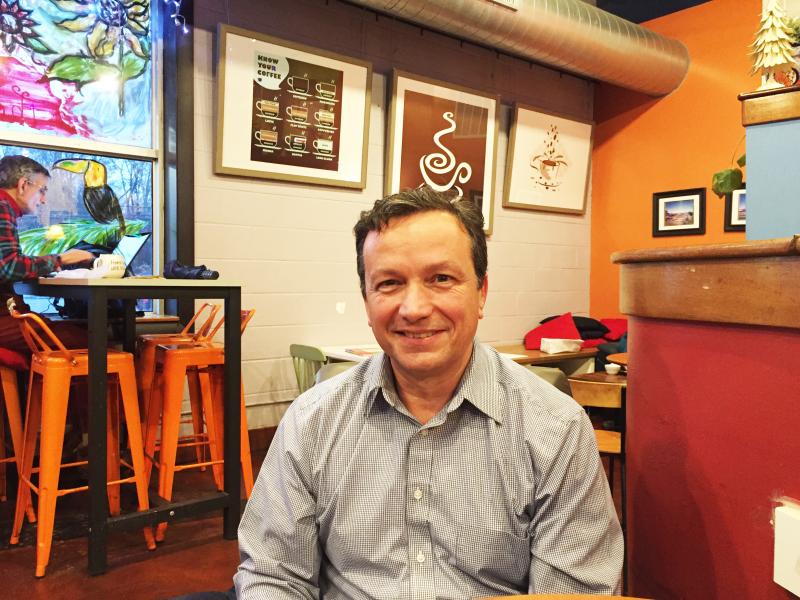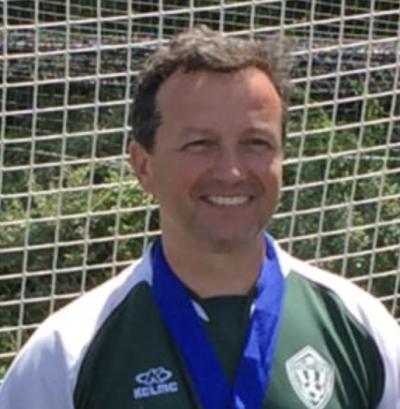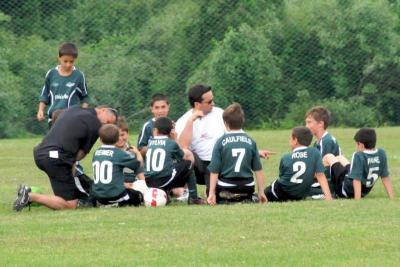Soccer Association President says goodbye after ten years
From high school to college to parent coach to youth league president, soccer has been Mike Fernandes' passion for more than three decades, but now the Dartmouth Youth Soccer Association President is ready to move on.
Fernandes announced this week that he will step down from the position after ten years on the job. The Dartmouth resident made the announcement in an email to DYSA members on December 15.
“I have stepped down to make room for the next generation of parents,” he wrote.
Fernandes added that he will remain on the board next year to help the new president, Bob Long, and the rest of the Board of Directors during the transition.
“It was time,” he said of his decision with a smile, noting that he’s stayed on three years after his youngest son left the program, which is normally run by parents. “I had told everyone last year that I planned on leaving, so they knew it was coming,” he said.
“We have a great board of directors, they’re super strong,” he added. “So I knew once I left it’d be fine.”
DYSA is an entirely self-funded non-profit organization staffed and run entirely by volunteers, including the coaches. It currently leases the fields from the town’s Parks and Recreation department.
Fernandes estimated the number of soccer students at around 1400 kids. “And that’s even with a declining student population, which is incredible,” he said. “A lot of kids, a lot of parents, a lot of opinions.”
The former president started playing soccer at New Bedford High School, where he was captain of the team in 1985, and also played Club soccer at Northeastern University. He has continued to play with friends over the years.
Once he had children of his own, he started coaching. At DYSA, he started off 18 years ago as a recreational coach, moving up in the organization and eventually becoming the president ten years ago.
“Honestly I didn’t like certain things being done at DYSA and instead of complaining I decided to help by joining the Board of Directors and later got elected as President,” he noted.
Fernandes described how he disagreed with the way the board changed the format of the fall program to make it less challenging for the kids.
“It was kind of like having a program that was four years long, and the kids were going to do the same exact thing for four years,” he explained. “And the kids, as they develop, they need more challenges.”
A friend of his on the board suggested that he join. “I said, ‘Do you really want me to join?’” he said with a laugh.
“I told them exactly how I felt, and they still voted me on,” he said. With Fernandes on the board, they introduced more difficulty into the program for older levels.
He started taking on more and more responsibility until the last president resigned.
But at first no one wanted to take over.
“No one would volunteer,” he said, laughing. “So I did it, but I didn’t think it was gonna last ten years!”
“Every year, things were running well, and people were happy, so I just kept on doing it,” he added.
Fernandes said he is most looking forward to focusing on his work.
While president of DYSA, he founded, ran, and then sold a small manufacturing company in New Bedford, and is currently the CEO of a high-tech electronics company on the Cape.
He is also hoping to develop some commercial real estate in New Bedford, and has started a solar panel company with his sons, who are both mechanical engineers.
And this business acumen has been useful to his work with DYSA.
“We ran the organization like a company,” he said. “Ultimately you have to understand that if you’re losing money, you won’t survive. So we were able to turn around the organization so it’s very financially stable.”
He said that he is proud of his accomplishments during his time at DYSA, including introducing Club soccer to Dartmouth so the more serious players have plenty of options available.
But his favorite part, he said, was coaching, which he described as “super rewarding.”
“I was able to create a special bond with my children as the coach, and the friendships made with both players and parents have lasted even after the kids have all grown up out of soccer,” he noted. “It was a great way to make friendships with people in the community that goes far past soccer.”
















